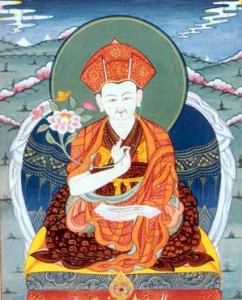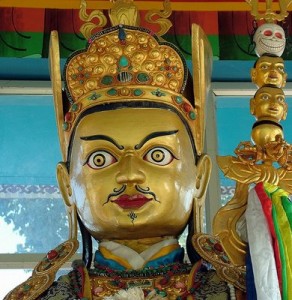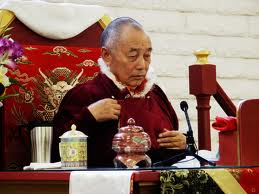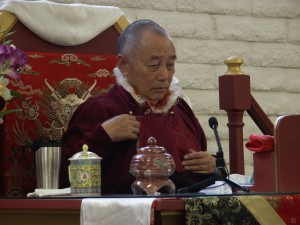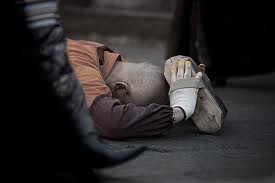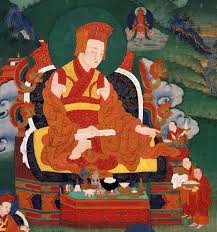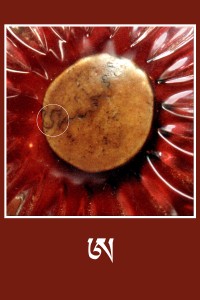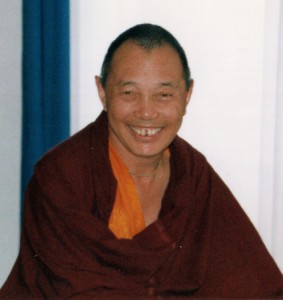The following is respectfully quoted from “Naked Awareness” by Karma Chagme with commentary by Gyaltrul Rinpoche:
Homage to Avalokitesvara!
A rough explanation of actions and their consequences has been presented in the preliminaries to the instructions on the profound practical teachings of Avalokitesvara, but it is difficult to gain from that more than a practical understanding. Precise comprehension of actions and their consequences is not achieved until one has accomplished great single-pointedness. Until there arises the realization of the “one taste appearing in numerous ways,” the subtlety of actions and their consequences is not discerned. Thus, the Kagyu masters of the past prayed, “Bless me that I may discern the subtlety of actions and their consequences.” For us, all felicity and adversity and all joys and sorrows of birth and death and so forth are dominated by our karma.
–“Great single pointedness” is the state of samadhi that arises due to investigating the nature of awareness, rigpa. The “one taste appearing in numerous ways” is a specific realization which is also called the “realization of the sole bindhu.” What is this one taste that appears in numerous ways? It is the single nature of all samsara and nirvana. It is seeing all phenomena simultaneously as being of one taste and one nature.
Spiritual success and mundane success all really stem from the merit you have accumulated in the past due to virtuous activity. Without merit, even if you give tens of millions of dollars towards a particular end, you won’t have the success you are aiming for. It really comes down to your own previous actions. So it’s important not to blame our lack of success on someone else when we experience failure or disappointment. Rather we must recognize that if we want to have success, we need to plant the seeds of virtue. If we want to avoid misfortune, then we need to avoid the source, which is nonvirtue. In the meantime, instead of blaming others for our failures, we must identify our own limitations and shortcomings and dispel them.–
The Chapter on the Cycle of Existence of Birth and Death states:
Wherever one is born in the three realms,
That birth is dominated by karma.
Karma, too, is something committed in the past.
Death as well is dominated by karma.
When the time comes for birth and death,
The gods gradually fall from the heavens.
Despite their great miraculous powers, they are powerless to remain.
–You can’t give someone else either good karma or bad karma, any more than you can give them virtue or nonvirtue. These are things that we accumulate and commit for ourselves. Whether we die in the womb, have a short life or a long life, these are the result of our karma.
Even great gods, such as Indra and Brahma, with their extraordinary powers, are powerless when the karma that propelled them into their present existence is exhausted. The reason for the precept not take refuge in mundane gods such as these is that they, like ourselves, are still entrapped in this cycle of existence. Since they have not liberated themselves, it would be difficult for them to liberate anyone else, so they are not suitable objects of ultimate refuge. Moreover, if you take refuge in, or absolutely entrust yourself to, other beings who are subject to the five poisons, you really have a problem, because they can’t release you from something they are not free of themselves. So this precept is truly for your own sake.
Some mundane gods may actually be great bodhisattvas, or even emanations of the buddhas appearing in the form of Indra, Brahma, and so forth. Nevertheless, it is generally good counsel not to take ultimate refuge in any of them, for it is difficult to discern which ones are actually bodhisattvas or emanations of Buddhas. In a way, we don’t really need to worry about this. we don’t have much, if any, direct contact with such gods anyway.–
